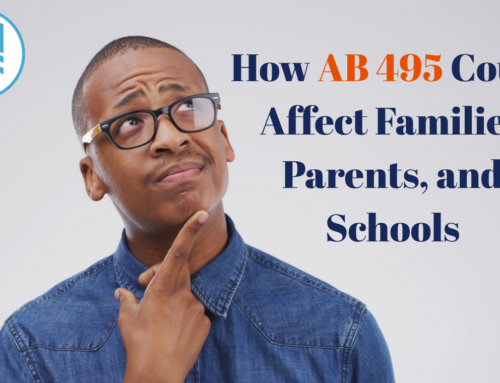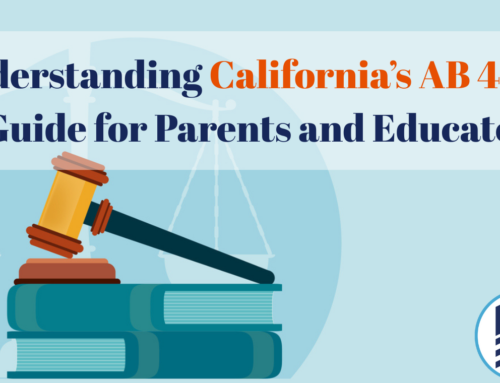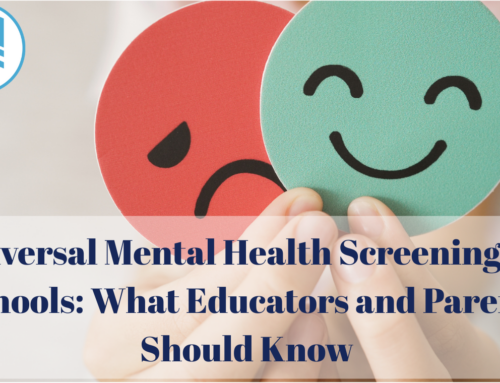
“Try to think of an education policy that 1) has been shown, in dozens of studies across multiple decades, to positively affect student outcomes; 2) has the overwhelming support of parents and voters; 3) reinforces many other policies and facilitates quality research; and 4) has been used widely at the district, state, and national levels for decades or more.”
This suggestive paragraph was the opening for a recent article by Education Next. Intrigued, I read on. “You might be thinking that such a policy doesn’t exist, and if it did, we’d surely want to keep it around. But the truth is precisely the opposite. Such a policy does exist—it’s called school accountability—yet the powers that be seem increasingly ready to throw it out and leave education to the whims of the all-but-unregulated free market.”
Well, that was an interesting piece of information. According to this article, school accountability has been doing great work. Student outcomes must be improving across multiple platforms, and it seems to have everyone’s support.
Is that true? Let’s look deeper into the idea of school accountability.
Public School Review reports, “Education Secretary Arne Duncan estimated that 82% of this country’s public schools are not passing the test in educating our children.”
Well, that doesn’t sound good. What happened to the resounding praise of school accountability that Education Next seemed to be confidently proclaiming?
School accountability is a big topic—and a major issue for nearly every group in America from politicians to teachers, from parents to minority leaders. It’s a vital topic, and as such, carries strong opinions along with it. Surrounded by controversy, praise, and criticism, it’s an issue that constantly demands attention.
“…here we are, nearly five decades after the birth of this big idea, and school accountability is losing momentum. How could that be? How could reforms that helped improve student performance, especially among minority students, start to lose favor?” the George W. Bush Institute asks.
How indeed?
What We’ve Discovered
“…the idea of accountability—holding not only students but teachers, schools, even school districts accountable for student performance—is a more contemporary invention,” reports the Hoover Institution.
School accountability grew out of the obvious issue of student inequality. Statistically, minority students appeared to be getting the short end of the stick, so to speak. Free-style curriculum, teaching, and testing were also concerning to many Americans. They were afraid that these methods weren’t producing good results and that students, in general, were suffering from it.
The Hoover Institution explains the flashpoint for policy change in education: “Interest in accountability may be traced to the landmark 1966 report Equality of Educational Opportunity, known as the Coleman report for its lead author, sociologist James Coleman. Written as a study to compare the distribution of resources and opportunities among children of different races, the Coleman report also examined differences in achievement scores, or outcomes.”
This eye-opening report led to a complete shift in education in almost every way—from teaching style to how Americans evaluate educational success. The study showed actual data, which in turn offered up not only a problem but also sent the country hurling into an age of education reform. Education shifted from input-based to result-based.
“School districts and campuses would be held responsible by policymakers and taxpayers if they did not provide a decent education for every student,” the George W. Bush Institute explains. “This idea came to be known as school accountability, and it was built around three principles: Creating rigorous academic standards, measuring student progress against those standards, and attaching some consequence to the results.”
The Results
BestAccreditedColleges offers up some unsettling data:
- “Students are not faring well on national assessments. The most recent NAEP assessments indicate that less than one third of U.S. fourth graders are proficient in reading, mathematics, science, and American History.
- More than half of low income students cannot even demonstrate basic knowledge of science, reading, and history.
- U.S. eighth graders ranked 19th out of 38 countries on mathematic assessments and 18th in science.
- U.S. twelfth graders ranked 18th out of 21 countries in combined mathematics and science assessments.”
The website continues, alleging that public school accountability isn’t up to par. “The public education system is very rarely held accountable for the undereducated students it churns out….Since 1960, the amount spent per pupil has more than tripled after dollars have been adjusted for inflation, yet the education our children are subjected to is not three times better. Why isn’t the system being held accountable?”
Others suggest that accountability isn’t to blame, attributing problems to other factors. For instance, The Edvocate offers 18 reasons other than school accountability that our public school system is failing. While these issues should doubtless be addressed to create the best education possible for our kids, school accountability isn’t quite off the hook…
Education Next reports that school accountability is proven to work, though not comprehensively. “School accountability, specifically test-based accountability, has been a staple of K–12 education policy since the 1990s (and even before that, in some states and districts). Over that time, we’ve learned quite a lot about it. First, we’ve learned that it can work. We’ve seen this in studies of individual districts, individual states, and the nation as a whole….Accountability doesn’t seem to do a great job at closing achievement gaps (though it certainly shines a light on underperformance), but there’s considerable evidence that it can raise student achievement.”
Accountability: How Can We Do it Better?
One area that we should definitely address is school accountability. Let’s take a quick look at a few of the problems and solutions.
1. The Advocate suggests that confusing standards with accountability is a fatal mistake in our system. The solution? “If we really wanted to reach high academic standards, then we would never focus on end-of-year results alone…Instead of focusing on the end-of-year scores, we should focus more on student progress.” The Advocate proposes that individual student progress is the key, tracking each student’s growth from one year to the next.
2. Current evaluation criteria may not be sufficient. For instance, Ed Fuller with the Center for Evaluation and Educational Policy Analysis (CEEPA) proposes that common evaluation standards in Pennsylvania might not give us accurate results. This means that, while school accountability is in place, the data used to hold schools accountable may be flawed at its foundation.
Fuller’s solution includes comparing schools similar in nature instead of comparing schools across the board. “In that system, schools are compared against other SIMILAR schools in their state.” BalancedReading.com explains the proposed system: “So small, rural schools with a great deal of poverty are compared against other small, rural schools with the same levels of poverty. Inner-city schools with a great deal of cultural and linguistic diversity are compared against other inner-city schools with a great deal of cultural and linguistic diversity. Apples are compared against apples, oranges against oranges. That’s fair.”
3. When parents aren’t satisfied with their children’s progress, they should have the option to remove their children from that school without being penalized in any way. School choice means you have the responsibility to choose your child’s schooling from a variety of options: public schools, private schools, home education, and everything in between. It also means that education funding is not only available to public school students.
One option for expanding funding for all is school vouchers.
“Vouchers are a form of accountability because they offer parents the opportunity to remove their children from an institution that does not satisfy them—an alarming premise for professionals whose livelihood depends on the survival of that institution,” The Hoover Institute proposes. “Vouchers directly challenge the supremacy of the state system of public education, so it is hardly surprising that spokespeople for public education would vigorously attack them.”
Offering parents alternative education opportunities when they are dissatisfied can help school accountability in two ways. The first is obvious. Schools and faculty must work hard to retain students. Competition will force them to grow, like it or not.
Second, for public schools that embrace the idea of improvement, school choice can help to build trust between the school and parents. While this may seem counterintuitive, school choice is like a “money-back guarantee” for families. Parents have the confidence that the school will work to retain their students, with the security of being able to go elsewhere if they aren’t satisfied. The public school that is confident in the good work they’re doing provides a quality education to all its students and creates customer satisfaction at the same time.
4. Schools must address the growing issue of “teaching to the test.” Since the No Child Left Behind Act was passed, standardized testing has become…well, a standard. These tests play a big part in determining which schools and students are doing well and which ones are not. Teacher salaries, federal funding, and community support are largely dependent on the results of standardized tests.
Reading Rockets gives a brief summary of what “teaching to the test” looks like: “…teachers narrow their instruction, organizing their teaching around clones of the particular questions most likely to be found on the test—and thus teach only the bits of knowledge students are most likely to encounter on exams.”
This gives everyone a false sense of what the students know. Of course, the students will largely do well on the test—the test is all they’ve been taught. For better and more accurate accountability, schools must address this issue.
5. The public school system, in general, should take a closer look at how we achieve accountability. Currently, standardized testing carries most of the weight of evaluating student progress. While this can be helpful, multiple methods of evaluation should be in play.
“A move toward reciprocal accountability, in which local districts use multiple measures to report progress to the state and the state provides support to districts to build quality local accountability systems, is possible,” reports the Center for Collaborative Education. “New Hampshire’s Performance Assessment for Competency Education (PACE), California’s CORE partnership, the NY Performance Standards Consortium, and the emerging MA Consortium for Innovative Education Assessment are all examples of schools, districts, and states moving in this direction.”
The Bottom Line
While school accountability has come a long way in the last 60 or 70 years, it still has a long way to go. Many factors are in play, and a lot of ideas and opinions on how to make our schools better are floating around. Collaboration, data-based policy reform, and open-minded exploration are key to reaching this goal.
What accountability measures does your local school district use? When you attend the next school board meeting, take special note of how accountability issues are handled. If you have questions, reach out to your elected school board member to share your thoughts or concerns.





[…] is a payoff though: the better proof of performance a charter school can offer, the more likely they are to stay “in […]
[…] What Can Schools Do to Get Better at Accountability? […]
[…] What Can Schools Do to Get Better at Accountability? […]